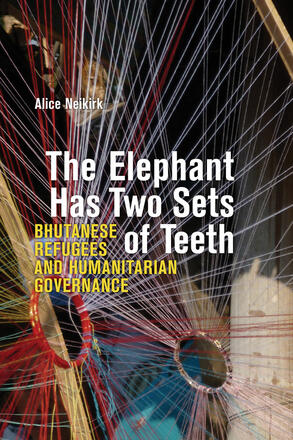
The Elephant Has Two Sets of Teeth
Bhutanese Refugees and Humanitarian Governance
This ethnography shows how the language of compassion is used to oppress Bhutanese refugees.
Description
This ethnography of Bhutanese refugees reveals how the language of compassion in humanitarianism is used to oppress vulnerable communities and erode their rights. Alice Neikirk conducted fieldwork with Bhutanese who fled Bhutan, resided in camps in Nepal, and finally settled in the vastly different culture of Australia. She observes that in accepting the role of humanitarian subjects, refugees must abandon their role as contributors to the nation state and become satisfied with the position of guests. Yet this charitable framework has sufficient cracks to allow for action. The Bhutanese found ways to move between the contradictory expectations of refugee-ness as they strive to become citizens. The experiences of the Bhutanese illustrate the complex strands of power that intertwine to limit the scope of people who “deserve compassion.” The well-meaning discourse of humanitarianism has become the accepted means to absolve the conscience of global powers as they face increasing evidence of the injustices that nation building causes and that national boundaries sustain. Readers in refugee studies, anthropology, and development studies will be interested in this unique ethnography.